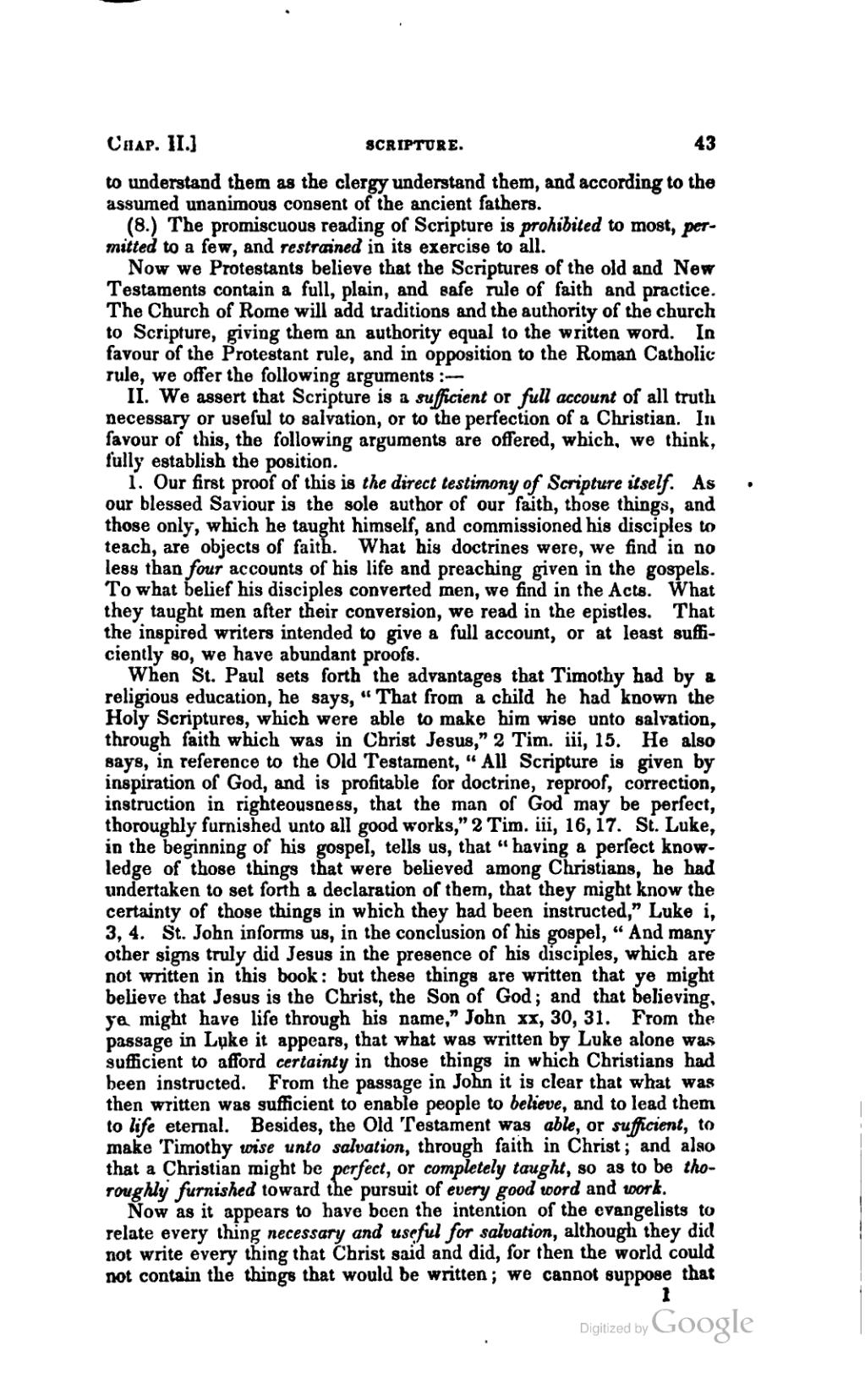Cmu,. II.1 scsrl,'r?sz. 43 to understand them as the clergy understand them, o. ncl according to the assumed unanimous consent of the ancient fathers. (8.) The promiscuous reading of Scripture is proAibited to most, per- mirted to a few, and restrained in its exercise to all. Now we Protestants believe that the Scriptures of the old and New Testaments contain a full, plain, and 8are rule of faith and practice. The Church of Rome will add traditions and the authority of the church to Scripture, giving them an authority equal to the written word. In fayour of the Protestant rule, and in opposition to the Romml Catholic rule, we offer the following arguments :-- II. We assert that Scripture is a ou?'ent or full account of all truth necessary or useful to salvation, or to the perfection of a Christian. In fayour of this, the following arguments are offered, which, we think, thlly establish the position. 1. Our first proof of this is the direct testimony of Scripture itself. As � our blessed Saviour is the sole author of our faith, those things, and those only, which he taught himself, and commissioned his disciples to teach, are objects of faith. What his doctrines were, we find in no less than four accounts of his life and preaching given in the gospels. To what belief his disciples converted men, we find in the Acts. What they taught men after their conversion, we read in the epistles. That the inspired writers intended to give a full account, or at least suffi- ciently so, we have abundant proofs. When St. Paul sets forth the advantages that Timothy had by s religious education, he says, "That from a child he had known the Holy Scriptures, which were able to make him wise unto salvation, through faith which was in Christ Jesus,"2 Tim. iii, 15. He also says, in reference to the Old Testament, "All Scripture is given by inspiration of God, and is profitable for doctrine, reproof, correction, instruction in righteousness, that the man of God may be perfect, thoroughly furnished unto all good works," 2 Tim. iii, 16, 17. St. Luke, in the beginning of his gospel, tells us, that "having a perfect know- ledge of those things that were believed among Christians, he hatl undertaken to set forth a declaration of them, that they might know the certainty of those things in which they had been instructed,"Luke i, 3, 4. St. John informs us, in the conclusion of his gospel, "And man)- other signs truly did Jesus in the presence of his disciples, which are not written in this book: but these things are written that ye might believe that Jesus is the Christ, the Son of God; and that believing, ye. might have life through his name," John xx, 30, 31. From the passage in L0ke it appears, that what was written by Luke alone was sufficient to afford certainty in those things in which Christians had been instructed. From the passage in John it is clear that what was then written was sufficient to enable people to believe, and to lead them to l/? eternal. Besides, the Old Testament was able, or ru ient, to � make Timothy wise unto salvation, through faith In Christ; and also that a Christian might be perj?ct, or completely taugla, so as to be t?- rougldi/furnio?ed toward tl?e pursuit of ew, ry good word and work. Now as it appears to have been the intention of the evangelists to relate every thing necessary and useful for salvation, although they did not write every thing that Christ sa?d and did, for then the world could not contain the things that would be written; we cannot suppoze tha? 1
�
